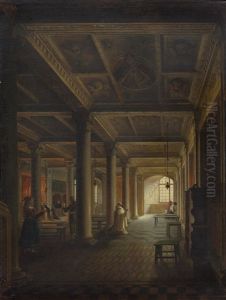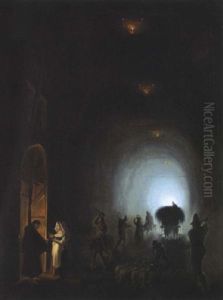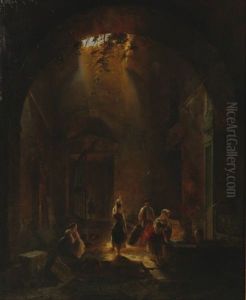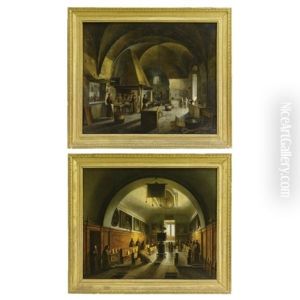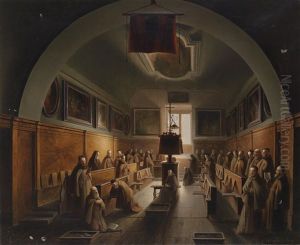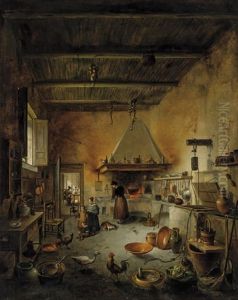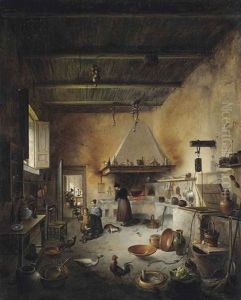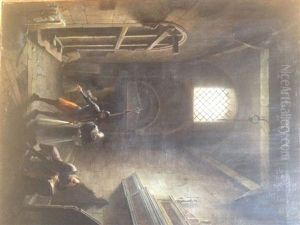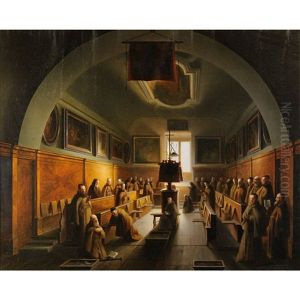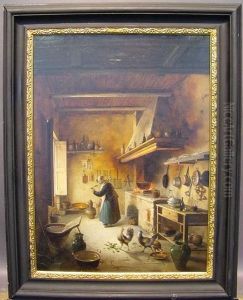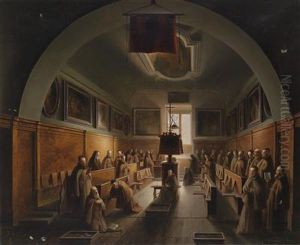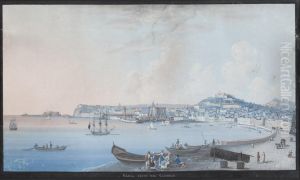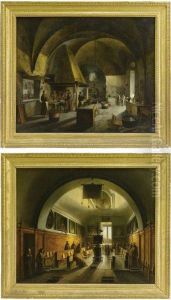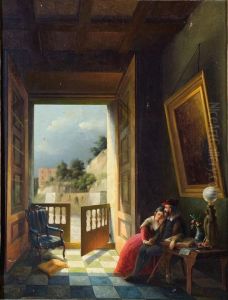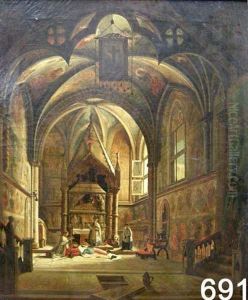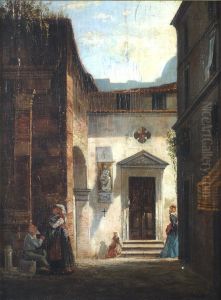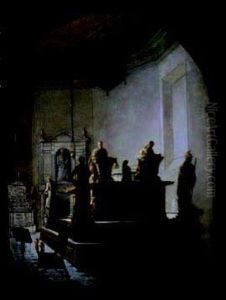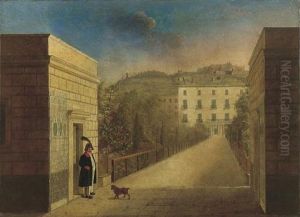Vincenzo Abbati Paintings
Vincenzo Abbati was an Italian painter born on January 5, 1803, in Naples, Italy. He was part of the 19th-century Neapolitan painting school and is known for his historical and genre scenes as well as his architectural interiors.
Abbati's early life was dedicated to the study of art, and he was initially influenced by the works of Neoclassical artists. However, as he matured, his style evolved, and he became more interested in depicting contemporary life and the world around him. This shift in focus is evidenced in his paintings, which often feature scenes of everyday life in Naples and its surroundings.
Throughout his career, Abbati traveled extensively within Italy and abroad. His travels included a significant period in Venice, where he was inspired by the unique light and atmosphere of the city. This experience is reflected in his works that depict the play of light and shadow in interior scenes, a subject for which he became particularly known.
Abbati's works were well-received during his lifetime, and he exhibited in various important exhibitions, including those held in Naples and Turin. He was also active in the artistic community, engaging with other artists and contributing to the development of the Neapolitan school.
Sadly, Vincenzo Abbati's life was cut short when he died on August 21, 1866, in Florence. Despite his relatively early death, his legacy continued through his contributions to Italian art, particularly in the realm of genre painting and his detailed studies of interiors that offer a glimpse into the life of 19th-century Italy.
